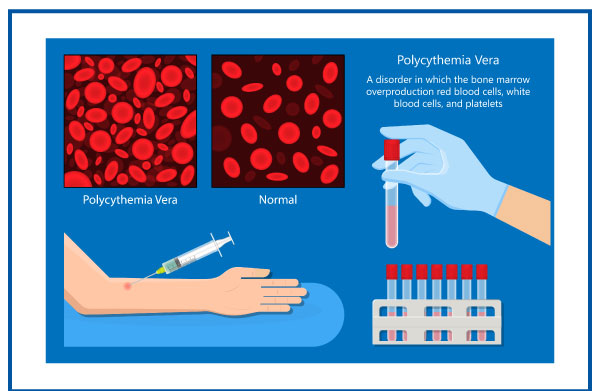RNA-based therapeutics are a new class of drugs that work by targeting and manipulating RNA molecules within cells to treat various diseases. RNA (ribonucleic acid) is a type of genetic material that is responsible for translating genetic information from DNA into functional proteins within cells.
The two main types of RNA-based therapeutics are messenger RNA (mRNA) and small interfering RNA (siRNA).
mRNA-based therapies work by introducing synthetic mRNA molecules into cells, which then instruct the cells to produce a specific protein. This can be used to treat genetic diseases caused by the lack of a functional protein, such as certain types of inherited disorders. mRNA-based vaccines, such as the Pfizer-BioNTech and Moderna COVID-19 vaccines, have also been developed and are being widely used to prevent infectious diseases.
siRNA-based therapies work by targeting and degrading specific mRNA molecules within cells, preventing the production of a disease-causing protein. This can be used to treat diseases caused by the overproduction of a harmful protein, such as certain types of cancer.
RNA-based therapeutics offer several advantages over traditional small molecule drugs and biologics, including their high specificity, ability to target previously “undruggable” targets, and rapid development timelines. However, they also face challenges such as delivery to the target cells and avoiding off-target effects.
Overall, RNA-based therapeutics represent a promising and rapidly evolving area of medicine with the potential to transform the treatment of a wide range of diseases.
The global RNA based therapeutics market size generated $4,938.38 million in 2021, and is projected to reach $25,121.95 million by 2030, growing at a CAGR of 17.6% from 2021 to 2030.

There are several steps involved in developing and using RNA-based therapeutics, including:
- Identification of target RNA: The first step in developing an RNA-based therapeutic is to identify the RNA molecule that is associated with the disease. This can involve identifying disease-specific mRNA or siRNA sequences that can be targeted.
- Design of therapeutic RNA: Once the target RNA has been identified, the next step is to design the RNA-based therapeutic. This can involve synthesizing mRNA or siRNA sequences that can bind specifically to the target RNA.
- Delivery to target cells: One of the biggest challenges in developing RNA-based therapeutics is delivering the therapeutic RNA to the target cells in the body. Various delivery methods have been developed, including lipid nanoparticles, viral vectors, and electroporation.
- Cellular uptake: After delivery, the therapeutic RNA must be taken up by the target cells. This can involve crossing the cell membrane and escaping endosomes to reach the cytoplasm, where the RNA can interact with the target RNA.
- Therapeutic effect: Once the RNA-based therapeutic has reached the target RNA within the cells, it can have a therapeutic effect by either promoting the production of a missing protein (in the case of mRNA-based therapeutics) or by blocking the production of a harmful protein (in the case of siRNA-based therapeutics).
- Safety and efficacy: RNA-based therapeutics must be tested for safety and efficacy in preclinical and clinical studies before they can be approved for use in humans. This involves assessing their ability to effectively target the desired RNA molecule and have a therapeutic effect, while also minimizing side effects and other safety concerns.
RNA-based therapeutics have been generating a lot of interest and investment in recent years, with several top pharmaceutical and biotech companies involved in the development of RNA-based drugs. Here are some of the top companies and their RNA-based therapeutic products in development:
- Moderna: Moderna is a biotech company that has developed an mRNA-based vaccine for COVID-19. They are also working on several mRNA-based therapeutics for other infectious diseases, cancer, and rare genetic diseases.
- BioNTech: BioNTech is a German biotech company that has partnered with Pfizer to develop an mRNA-based vaccine for COVID-19. They are also working on mRNA-based therapeutics for cancer and other diseases.
- Alnylam Pharmaceuticals: Alnylam is a biotech company that specializes in RNA interference (RNAi) technology. They have developed several siRNA-based therapeutics for rare genetic diseases, including Onpattro for the treatment of hereditary transthyretin-mediated amyloidosis.
- Arrowhead Pharmaceuticals: Arrowhead is a biotech company that is focused on developing RNAi-based therapeutics for liver diseases, including ARO-AAT for the treatment of alpha-1 antitrypsin deficiency.
- Ionis Pharmaceuticals: Ionis is a biotech company that is focused on developing antisense oligonucleotide (ASO) technology, a type of RNA-based therapy that targets RNA directly. They have several ASO-based drugs in development for rare genetic diseases and other conditions.
Overall, RNA-based therapeutics represent a rapidly growing field with a lot of potential for treating a wide range of diseases. With continued investment and research, we can expect to see more RNA-based therapies being developed and approved for clinical use in the coming years.




